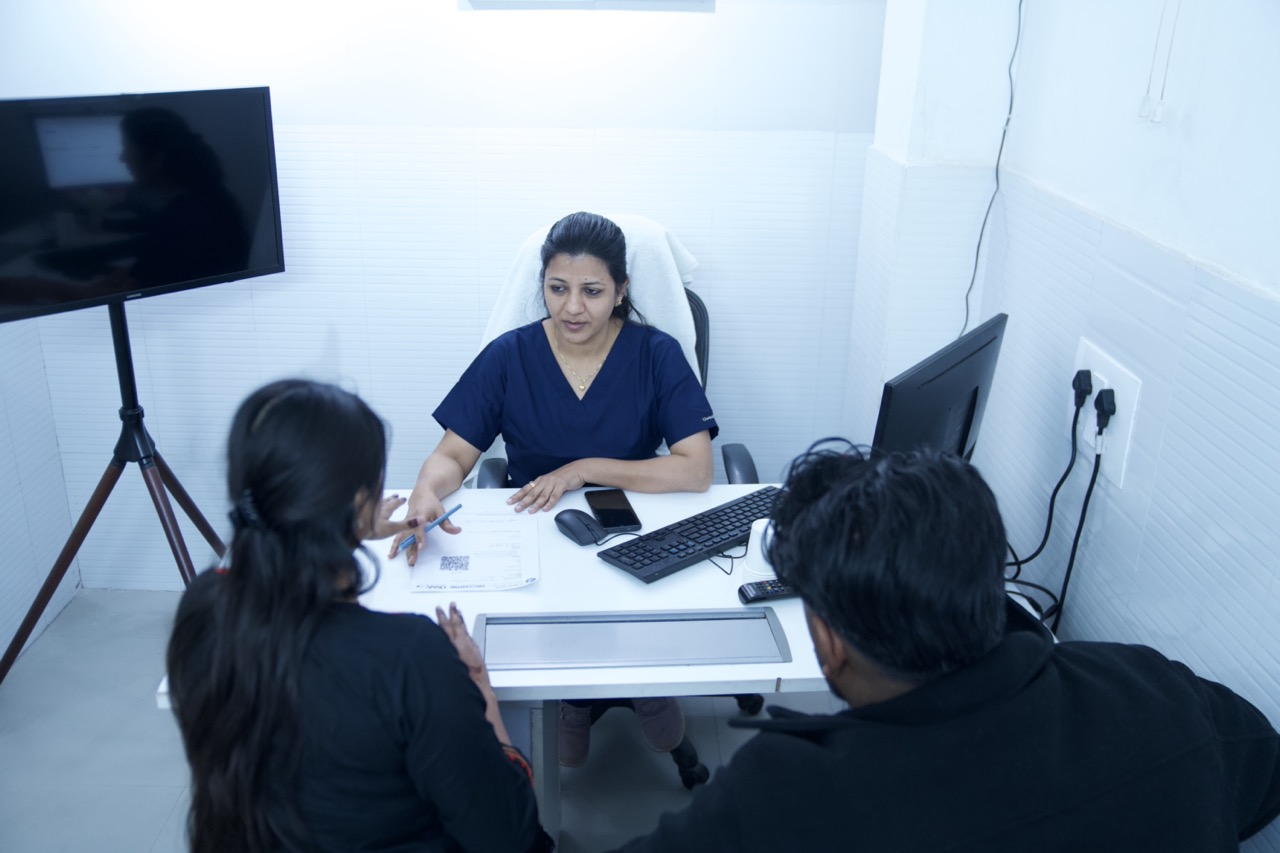For many people considering in vitro fertilization (IVF), a common concern is: “Will IVF be painful?” While some steps may cause mild discomfort, IVF is generally well-tolerated and is not generally considered a painful procedure. Let’s break down the process so you know what to expect and how to make the experience as comfortable as possible and what are the special things we do at CRAAFt to make it even more comforting.
What is IVF and Which Steps Might Be Uncomfortable?
IVF involves multiple stages—stimulating the ovaries, retrieving eggs, fertilizing them in a lab, and transferring the embryo into the uterus. Some steps are completely painless, while others may cause temporary discomfort.
1. Ovarian Stimulation (Hormone Injections)
What happens? Hormone injections stimulate the ovaries to produce multiple eggs.
Does it hurt? The injections use fine needles, similar to a flu shot or insulin injection. Some women may experience bloating or mild cramps due to hormonal changes.
How to ease discomfort? Rotate injection sites, apply ice before injecting, and stay hydrated.
2. Egg Retrieval
What happens? A doctor collects eggs from your ovaries using a thin needle while you’re under anesthesia or sedation.
Does it hurt? No, as you’ll be asleep or given medication to keep you relaxed. Mild cramping or bloating may occur afterward for which we use special drugs to reduce irregular contractions and we administer it round the clock to reduce pain in IVF.
How to ease discomfort? Rest, drink plenty of fluids, and take mild pain relievers if needed.
3. Embryo Transfer
What happens? A high-quality embryo is placed into your uterus using a thin, flexible catheter.
Does it hurt? Most women say it feels like a routine Pap smear. Some might feel slight cramping, but it’s brief and mild.
How to ease discomfort? Relax, take deep breaths, and stay positive!
How CRAAFT Minimizes IVF Discomfort
At CRAAFT, we prioritize patient comfort throughout the fertility journey. Here’s how we ensure a smoother experience:
Expert Care: Our skilled doctors use gentle techniques to minimize discomfort.
Personalized Plans: Treatment is tailored to your body’s needs, reducing unnecessary stress.
Advanced Technology: State-of-the-art equipment ensures precision and less invasive procedures.
Emotional Support: Our caring team is here to guide you through every step and manage any anxiety.
What Can You Do to Reduce Discomfort?
Beyond expert care at CRAAFT, here are some ways to stay comfortable during IVF:
- Use Ice Packs – Numb the injection site before shots.
- Try Relaxation Techniques – Deep breathing, meditation, or light yoga can help.
- Take Pain Relievers (if needed) – Stick to doctor-approved options like acetaminophen.
- Stay Hydrated & Eat Well – A balanced diet helps your body function optimally.
- Communicate with Your Doctor – If discomfort persists, let your doctor know for adjustments.
When to Seek Medical Help
While mild discomfort is normal, severe pain is not. Seek immediate medical attention if you experience:
- Severe abdominal pain or cramping that does not subside
- Heavy bleeding beyond normal spotting
- Severe bloating or nausea, which could indicate Ovarian Hyperstimulation Syndrome (OHSS)
- Fainting, dizziness, or difficulty breathing If any of these occur, contact your doctor or visit the nearest emergency room immediately.
Final Thoughts
IVF is a transformative journey, and while mild discomfort is expected, severe pain is rare. With expert care at CRAAFT and proper pain management techniques, the process is manageable and well worth it for the chance to build your family.
If you have concerns or questions regarding pain in IVF, don’t hesitate to reach out—our team is here to support you every step of the way!

Leave a Reply